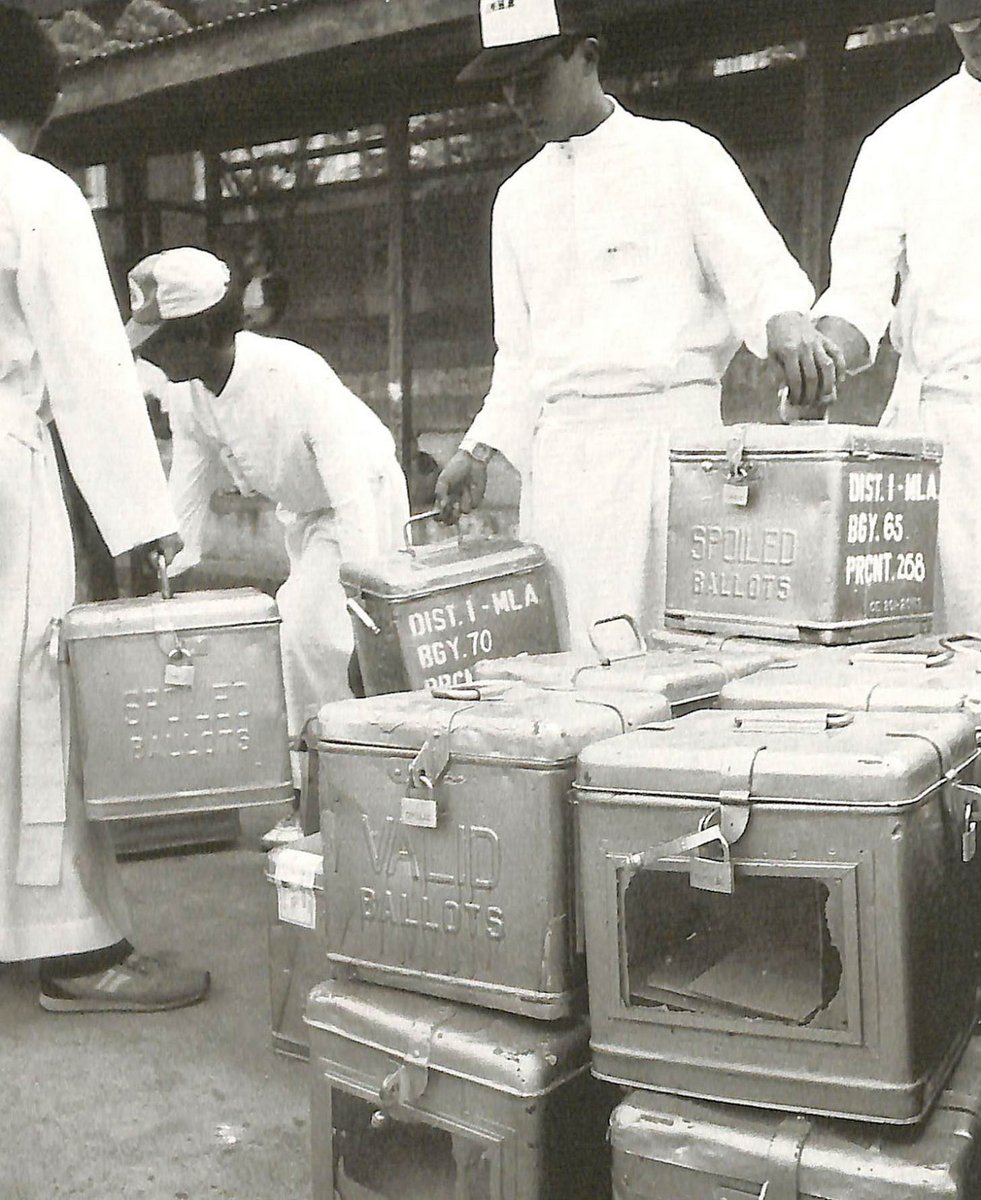#TodayinHistory in 1923, all #Filipino cabinet members including those in Council of State tender their resignation in defiance of U.S. Gov-Gen Leonard Wood, due to his reinstatement of Ray Conley in Interior Dept, a U.S. detective involved in corruption. (THREAD)
#PH #history
#PH #history

Context: With the passage of the Jones Law by U.S. Congress in 1916, the U.S. pledged that it would eventually recognize #PH independence. As such, Filipinization, the process of putting Filipinos in gov positions, was in full swing. 

Wood, who was Gov-Gen of #PH under the U.S. from 1921-1927, was a former governor of the Moro Province, when the U.S. sought to quell the Moro Rebellion. Wood instigated the 1st Battle of Bud Dajo in 1906, where U.S. forces committed atrocities. tmblr.co/ZtGCUxglJHu3
Since his first year in office as Gov-Gen, Leonard Wood vetoed 16 bills passed by the Filipinized #PH Legislature under the U.S. colonial administration. This was widely seen as an abuse of Executive veto powers, for even his predecessor only vetoed 5 bills. 

Wood was also known to be a staunch anti-Filipinization gov-gen. Numerous issues in banking & taxes compounded the dissatisfaction of Filipino leaders led by Sens. Quezon, Osmeña & Speaker Roxas over Wood. Meanwhile, Ray Conley, an American detective, was suspended for bribery.
Wood formed an investigating body to look into Conley's case. On 12 July 1923, it recommended that Conley be reinstated & Wood did so, despite implicating evidence. This caused uproar among Filipinos. Interior Sec. Jose P. Laurel accepted the decision, but resigned in protest 

Laurel was followed by 4 other Filipino cabinet members, then by Senate Pres. Quezon & House Speaker Roxas as members of Wood's Council of State. This would be known as the Cabinet Crisis of 1923. The Wood administration never recovered from the fallout, until Wood's death (1927)
The episode also heightened the aspirations of Filipinos for independence from the United States.
Photos:
- US Gov Gen Leonard Wood addressing the #PH Legislature at Marble Hall, Ayuntamiento (c 1922), @librarycongress
- Jones Law Poster (1916), via Presidential Museum & Library 2010-2016
- Leonard Wood's portrait from (archive.org/stream/leonard…)
- JP Laurel, 1922, PML
- US Gov Gen Leonard Wood addressing the #PH Legislature at Marble Hall, Ayuntamiento (c 1922), @librarycongress
- Jones Law Poster (1916), via Presidential Museum & Library 2010-2016
- Leonard Wood's portrait from (archive.org/stream/leonard…)
- JP Laurel, 1922, PML
• • •
Missing some Tweet in this thread? You can try to
force a refresh











